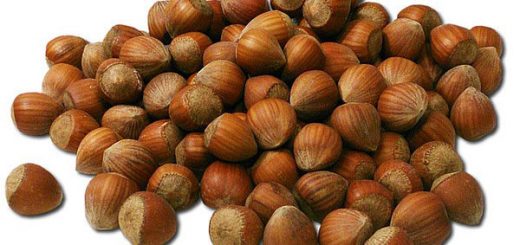What is Menstruation: All Wonders About Menstruation in 10 Questions

Menstruation, which can also be expressed as menstruation, is the discharge of tissues formed in the uterus from the body in the form of blood, thanks to the monthly cycle of women’s reproductive hormones. It is intrauterine bleeding that occurs every month. This cycle continues until menopause. With menopause, the menstrual period ends. Although it is known by names such as menstruation and menstruation among the people, menstruation; It is not a situation that requires embarrassment or hiding from society in social life. Menstruation begins in adolescence and continues until menopause. It is considered healthy to be seen regularly. Irregular menstruation poses a health problem.
1) What are the Menstrual Symptoms?
Some syndromes may be experienced before menstruation. These syndromes are given the code “pms”. It is called premenstrual syndrome.
- A few days before menstruation, the breasts become swollen.
- Sometimes pain and cramps are also felt in the groin area.
- There is some acne on your skin.
- Due to the effect of the menstrual period, emotionality and tension are also spiritual symptoms.
Not every woman may experience these symptoms before menstruation. It differs from body to body. In fact, the severity of menstrual pain varies according to each woman. If you started to stock up on chocolates, we can say that your period will start in a few days 🙂
2) How Many Days Does Menstrual Last?
Puberty begins with menstruation. Nowadays, since puberty has decreased, every young girl of 12 years old meets her period. Menstrual period continues differently for each individual. Some women have their periods for 2 days, while others are known to last up to 7 days. Long periods of menstruation are not considered normal by doctors. It is recommended that women who have more or less menstruation from these days get better information from experts. Women whose menstrual calendar is not regular may have a hormonal or other health problem. We recommend that you make a note of the start day of your period every month.
3) Are Menstrual Emotion Changes Normal? Why Live?
Emotional changes experienced during menstruation are considered normal by experts. Biological changes restrict a person’s social life for a while and make it stressful. When this situation becomes a problem, anxiety and depression can be seen. Progesterone hormone is the main reason for the mental changes seen during the menstrual period when the hormones are renewed. Women who have menstruation also fluctuate in the hormone progesterone. Emotional shifts occur as hormones change. If the emotional transitions affect work and home life, it is recommended to seek medical support.
4) Menstrual Delay: Why Is Menstrual Delayed?
- The most known of the factors that cause delay in menstruation is the suspicion of pregnancy.
- Doing too much exercise also delays the menstrual day.
- Diseases such as infection and flu before menstruation are another reason.
- Ovarian disease called polycystic ovary syndrome can delay menstruation for a long time.
- If you are overweight for your age and height, it is considered very normal to experience a delayed period.
- Since menstruation will be regulated during the breastfeeding period, the menstrual day of breastfeeding mothers may be delayed.
- In addition, stress and some medications that are used regularly are also causes of menstrual delay.
- Thyroid disorder and the period of approaching menopause should not be forgotten.
5) What is Good for Period Pain?
- The most effective method for menstrual pain will be to drink plenty of water and establish intimacy with a hot water bag for a while.
- Light-paced walks and ginger tea will reduce the severity of menstrual pain.
- We can recommend fennel or lavender tea to those who say they don’t like ginger.
- If you consume molasses for breakfast during your period, you can get rid of the pain.
- During this period, you should pay attention to taking vitamin E.
- By eating nuts and drinking coffee in your sweet crisis, you can both relieve the pain and protect yourself from gaining weight by making healthy choices. In addition, dark chocolate will be a delicious and healthy solution for menstrual pain.
6) What are Menstrual Removal Herbs?
Menstrual pains are experienced when menstrual blood is thrown hard. In order to relieve this condition, anti-menstrual herbs are recommended. These plants would be celery, dill, parsley, onions and carrots. Also, when you want to brew herbal tea:
- Centaury
- Thyme
- black cumin
- Daisy
- Sage
- You can choose cinnamon tea.
It is possible to put an end to pain and cramps with these medicinal plants. Anti-menstrual herbs can give you a more comfortable and enjoyable menstrual period. All of them are like medicine for you.
7) Can You Get Pregnant While Menstruating?
We will answer “yes” to the question of is it possible to get pregnant while on your period. Ovulation usually occurs on the 4th day of your period. Sperm maintain their vitality in a warm environment. Therefore, there is a risk of pregnancy 3 days before and 7 days after the menstrual period. The necessary environment for pregnancy is prepared for women who have menstruation. If you have sexual intercourse during this period, there is a high probability of getting pregnant. Since each woman’s metabolic characteristics are different, it is recommended to get information from an obstetrician and gynecologist to learn about this issue in the best way.
8) What Is A Sign Of Not Menstruating?
There are also women in society who have never had a period:
- The medical explanation for this condition has to do with genetic factors. Some people have “Testicular Feminization”. In other words, although they are genetically male, they have a female appearance due to the insensitivity of male hormones. It is not possible for these people to menstruate.
- It is also known that the disease called – Turner’s syndrome – prevents menstruation. Turner syndrome is caused by a missing chromosome. It is a condition in which menopause occurs at a very young age.
- Not having a period for a long time is a harbinger of menopause.
- Women with irregular periods should see a doctor.
9) What Does Menstrual Irregularity Indicate?
Menstrual irregularity can be seen for a while starting from the year the menstruation started. This is a normal situation.
- Long-term menstrual irregularity is a sign of a hormonal disorder.
- It also reminds the risk of fibroids, polyps, hyperplasia, cancer, infection, ectopic pregnancy, drug use, and thyroid gland diseases.
- Medicines used for a different disease also cause menstrual irregularity. In such cases, information should be obtained from the doctor following the treatment.
- If menstrual bleeding, which is seen every 24 or 35 days on normal days, is experienced after a longer period; the ovaries should be considered to be struggling with a problem.
- If there is menstrual irregularity in the 40s, it can be said that it is a harbinger of menopause.
We recommend that you consult a specialist doctor for the most accurate answers to your questions. Healthy days!











